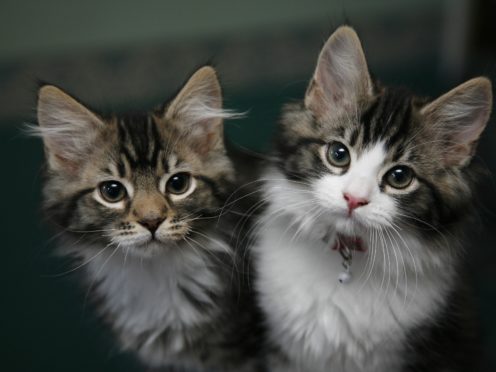Picnics and cats get more mentions on British TV programmes than climate change, analysis has found.
The findings, which also revealed climate change only narrowly beats mentions of zombies despite being a much more real threat, come as a new guide is launched to help industry weave more environmental messaging into programmes.
Analysis by Deloitte for the British Academy of Film and Television Arts (Bafta) and TV sustainability project albert, analysed subtitles of 128,719 programmes, excluding news, over a year on 40 channels using data supplied by the BBC, ITV, Channel 4 and Sky.
BAFTA and albert call for more sustainability plot lines on British TV after releasing research that ‘cats’ and ‘picnics’ and 'zombies' get more mentions than climate change.
— BAFTA (@BAFTA) May 15, 2019
Climate change was mentioned 3,125 times, while other “green” terms such clean air, electric car, carbon emissions and food waste only got a few hundred mentions each.
That compares to 68,816 mentions of Brexit, while cake came up in conversation 46,043 times, cats were mentioned 14,454 times and picnics on 5,949 occasions, and even Shakespeare got 5,444 mentions.
Climate is largely only mentioned when talking about the environment rather than being brought into the conversation of other topics, the report found.
And it revealed that when environmental terms were used, there was more talk about issues and problems rather than solutions, with more references to climate change and global warming than electric cars or solar power.
But it highlighted examples of where environmental terms had turned up in programming, from “carbon emissions” in You’ve Been Framed to “solar power” in Escape To The Country.
These examples offer hope that programmes of every genre could identify and use creative ways for audiences to hear about climate, the report said.
The report was published as Planet Placement, a new guide designed to challenge and inspire those working in the industry to weave sustainability messages into on screen content, no matter the genre, was launched.
Aaron Matthews, head of industry sustainability at albert, said: “To help shape society’s response to climate change we cannot rely solely on the current affairs and natural history programmes, we must think creatively and look for other ways to bring sustainability messages to our screens that are both optimistic and inspirational.
“We are setting up free training sessions for anyone working in the industry, across all genres, so we can begin to explore what a creative response to climate change could look like.
“I look forward to revisiting this data in a year or two, to see how things have changed.”
Pippa Harris, chairwoman at Bafta, said: “The TV industry’s call to address climate change is clear.
“Reducing our impact is a given, but our real opportunity lies in the programmes we make, and in our ability to use powerful human stories to connect audiences with the world around them.
“We need to understand the links between climate change and society, and act strategically to ensure we do everything in our power to avert the climate crisis.”
